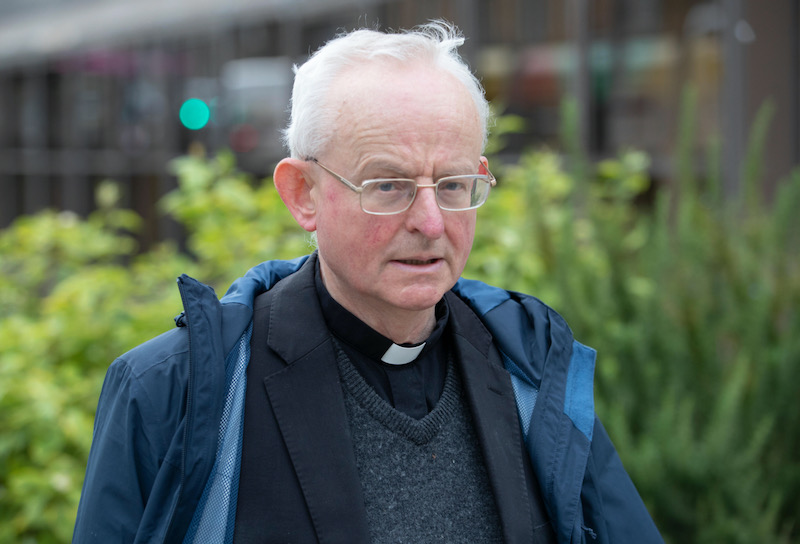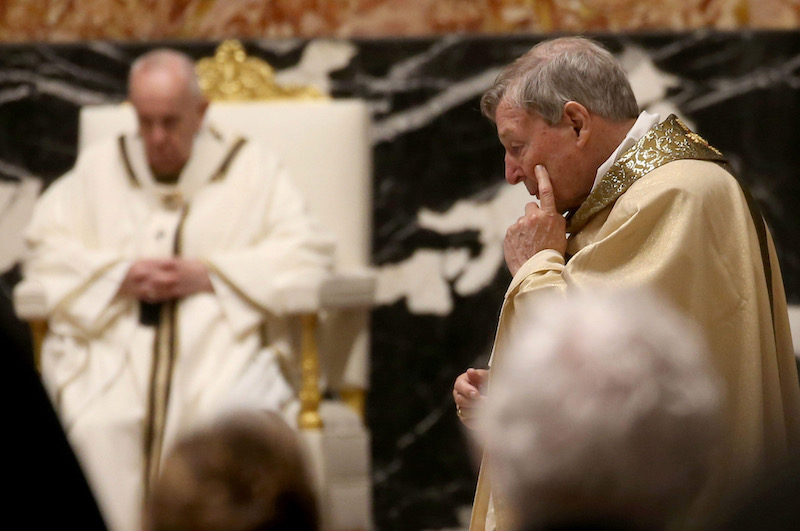An Australian court has imposed hefty fines on some of the country’s biggest newspapers, websites and radio stations for their coverage of Cardinal George Pell's now-quashed conviction in a sexual abuse case.
In all, 12 media groups were fined a total of A$1.1 million (£600,000) after admitting they breached a legal order in 2018 banning them from reporting the verdict at the time.
Victoria Supreme Court Justice John Dixon rejected arguments that the news reports – even though they did not name Cardinal Pell – were in the public interest.
Cardinal Pell, Australia’s highest-ranking Catholic, previously a senior Vatican figure and a close adviser to the Pope turns 80 this month and is now living in Rome putting back together a life and career that were upended by his criminal trials and more than 400 days spent in gaol.
Nine Entertainment, publisher of Melbourne’s The Age newspaper and owner of Channel Nine, was fined over A$600,000 for its stories, while Rupert Murdoch's News Corporation, was fined about $430,000, for its reports on its news.com.au site, The Daily Telegraph and other newspapers.
The reporting ban – enforced through a legal order – was put in place at the start of Cardinal Pell's 2018 trial to prevent the possibility of prejudice affecting a separate trial he was to face on other charges.
The suppression order banned journalists from reporting any detail of the sexual abuse case, including his conviction when it was ruled by a jury in December 2018.
The High Court of Australia later overturned the guilty verdict against Cardinal Pell on appeal.
The suppression order was later lifted in February 2019. But several outlets published reports referring to his case shortly after his conviction.
Much of that coverage in December 2018 criticised the secrecy of the case without specifically naming Cardinal Pell.
The Australian public had access to front page newspaper headlines that referred to a trial of great importance and, by implication, a guilty verdict that would have been of great interest to the public.
The headlines included the following three: Nation's biggest story: The story we can't report, Secret scandal. It’s Australia's biggest story and A high-profile person found guilty of a terrible crime. The world is reading about it but we can't tell you a word.
Justice Dixon ruled media that had breached the ban “usurped the function of the court in protection of the proper administration of justice”.
“In doing so media respondents… took it upon themselves to determine where the balance ought to lie between Pell's right to a fair second trial... and the public's right to know,” a summary of the court judgement read.
Justice Dixon also said editorial attacks on the suppression order – from news.com.au and The Age newspaper “in particular constituted a blatant and wilful defiance of the court's authority as each took a deliberate risk by intentionally advancing a collateral attack on the role of suppression orders in Victoria’s criminal justice system.”
The judge rejected the media companies’ submission that breaches of the suppression order were due to “an honest but mistaken belief that their reporting would not contravene the order”.
Other outlets fined and receiving smaller penalties included The Herald Sun, The Courier Mail, The Sydney Morning Herald, The Australian Financial Review, news sites Mamamia and Business Insider, radio station 2GB as well as the Channel Nine TV network.



 Loading ...
Loading ...